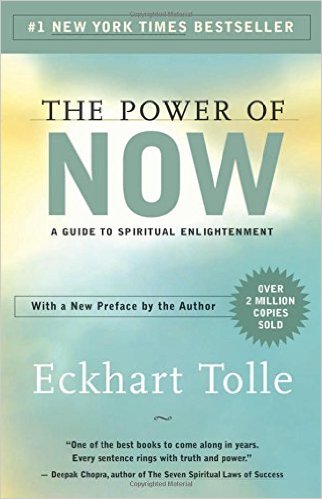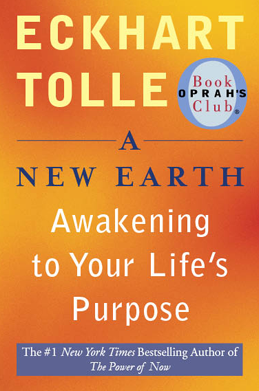|
Word Gems
exploring self-realization, sacred personhood, and full humanity
Editor's 1-Minute Essay:
Fear
return to "Fear" main-page
fear and guilt
The fear of death, along with existential guilt, represent two primary psychological weapons of cultish organizations in their untoward efforts to control the masses.
It's very important to understand how we're affected by these twin maladies, insights concerning which will protect us from The Lying Teacher.
One of my favorite sources of instruction here is Dr. Ernest Becker's Pulitzer Prize winning work, from which I will be extensively quoting.
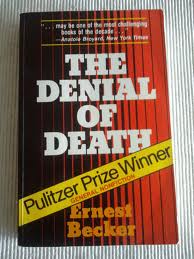
some say the fear of death is not innate but something we learn, a function of child-rearing deficiencies
"This view is very popular today in the widespread movement toward unrepressed living ... the abandonment of guilt, shame, and self-hatred... From this point of view the fear of death is something society creates...
"the worm at the core"
There is also the view that "the fear of death is natural and present in everyone, that it is the basic fear that influences all others, a fear from which no one is immune, no matter how disguised it may be. Dr. William James spoke very early for this school, and ... called death 'the worm at the core' of man's pretensions to happiness."
"I frankly side with this second school ... the universality of the fear of death, or 'terror' as I prefer to call it, in order to convey how all-consuming it is when we look it full in the face."
the fear of death is an expression of the self-preservation instinct
It's an "argument from biology and ... I don't see how it can be left out of the discussion. Animals in order to survive have had to be protected by fear-responses... They had to see the real relationship of their limited powers to the dangerous world in which they were immersed. As the human infant is in an even more exposed and helpless situation, it is foolish to assume that the fear-response of animals would have disappeared in such a weak and highly sensitive species."
|
fear is the apprehension of losing something, to be diminished, to become less
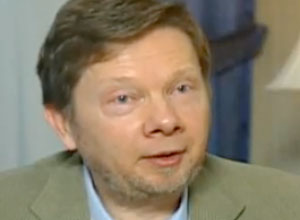
an excerpt from Eckhart Tolle's book, "Stillness Speaks":
Most people’s lives are run by desire and fear.
Desire is the need to add something to yourself in order to be yourself more fully.
All fear is the fear of losing something and thereby become diminished and “be” less.
These two movements obscure the fact that “being” cannot be given or taken away. “Being” in its fullness is already within you. Now.
|
|
You’ve heard the saying that fear and greed move the stock market. This is true. But this dictum obscures the fact that all activities – 100% -- of the unenlightened mind, the egoic “false self,” is managed by the same.
Let’s translate “fear and greed” as “fear and desire.” We speak of desire here as relating to inauthentic needs. However, to clarify even more, let’s bring in the above definitions of fear and desire:
All human activity that’s impelled by the “false self” represents either (1) an effort to enhance and add to itself, due to perceptions of “I don’t have enough” because “I am not enough” – all this is egoic desire; however, (2) when the dysfunctional ego deems itself to be under attack, experiencing the threat of diminishment, of becoming less, of imminent loss of some sort, then its thoughts and deeds will be motivated by fear.
true self versus false self
But what is this “inauthentic desire” based on “inauthentic need”? It might be asked, aren’t all needs authentic? If we feel that we require something, doesn’t this speak to real need on some level, or why would we feel a need for it? Yes, the need will be real, on some level – the level of the “false self.” On that level, it will seem very real.
content versus structure
This insane part of us feels that “more content” will save it from feelings of “I don’t have enough.” But this is illusion. All the “content” in the world, after a while, a short while, will mean nothing to the ego. Soon it will want what’s on Mars, too. The ego’s problem is “structural” and no amount of “content” will remove its systemic unease. Only a shift -- an upward one -- of consciousness will be its savior.

What does it mean, an “upward shift of consciousness”? It means that, instead of viewing the universe as shortage and lack – “the glass is half empty” – which is the “false self’s” perspective, one must realign one’s spirit as founded upon the “true self,” a view of destined abundance and prosperity, of living under God’s care and direction: “the glass is half full,” with always more to come.
As the concept of “desire” is often used to describe a quest for a sexual partner, let’s keep in mind that “content” versus “structure” very much applies here, too. John and Mary cannot find their lasting bliss if dominated by egoic desire. They believe in the “many fish in the sea” theory of romance, that is, in potentially unlimited content when it comes to choosing a mate. The very idea of “choosing” a mate immediately causes penalty flags to drop.
Further, John especially, concerning “content” related to unlimited sex, if he could get away with it, would have a thousand women at his call, just the way it’s done with the despots of history and their harems, or the “rich and famous” today with, as Marlon Brando put it, “women coming in the front door and going out the back window.” But unlimited content, regarding sexual conquest as means to satisfaction, is an illusion. It will not fill the existential void. All the women in the world, and those on Mars, too, would not satisfy the insane desire of the ego’s “I don’t have enough.”
The true mate, the “soulmate, myself,” is not your choice. She's not necessarily the one you thought you'd want; she will grow to be such, later, when one receives one’s eyes, but she comes answering authentic need, authentic desire, the requirements of the true self.
Only she can answer the “structural” problem; only she can finally put an end to the restless and roving eyes seeking for unlimited content.
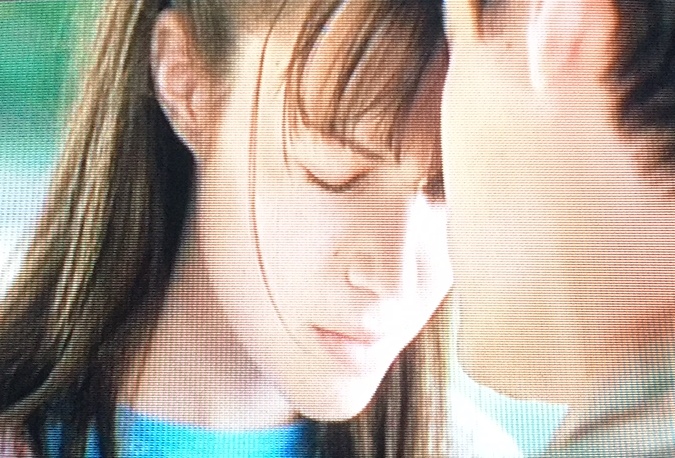
|
the fear of death seems to disappear in some people
"But its disappearance doesn't mean that the fear was never there. The argument [now becomes] ... about how effective repression is... [We know that the fear has not gone away as revealed by] psychological tests such as measuring galvanic skin responses; it strongly suggests that underneath the most bland exterior lurks the universal anxiety, the 'worm at the core.'"
coping mechanisms: daily-living and the fear of death; psychotic breaks when distracting busy-ness and repression no longer work
"He uses all kinds of techniques which we call 'character defenses': he learns not to expose himself, not to stand out; he learns to embed himself in other-power [various strong, cultish father-figures in life and society] ...[Any open-eyed awareness that might have been available to us] is blotted out by [distracting] frenetic, ready-made activity; we see the transmutation of repression redistilled, so to speak, and the fear of death emerges in pure essence. This is why people have psychotic breaks when repression no longer works, when the forward-momentum of activity is no longer possible."
a dysfunctional self-immersion in other-power, the attempt to escape the inner-child's helplessness due to fear of death; drawing one's courage to be
The Latin root of identify means "sameness." To identify with something is to make oneself equal to it. For the Small Ego this enhancement and "ego-repair mechanism" quickly devolves to pathology; an effort, due to feelings of inadequacy, to counteract a haunting existential sense of "I am not enough."
Dr. Ernest Becker: "Man could strut and boast all he wanted [trying to deny his fear of death], but he really drew his 'courage to be' from [the things he identified with,] a god, a string of sexual conquests, a Big Brother, a flag, the proletariat, the fetish of money, and the size of a bank balance."
One of the most common, and surely the most potent, ego-supports is that of Institutional Religion. Few things juice the "Little Me" more than the fear of death, God, and judgment. And religion - I do not say spirituality, which is different - becomes the Small Ego's favorite means by which it negotiates the terrors of mortality. Under the guise of religiously posturing as a "good person," the ego, by such pious role-playing, attempts to cut a deal with the Grim Reaper, assuring safe passage to heaven, thereby cheating the greedy fires of hell, judgment, and a humorless God.
Alan Harrington, “The Immortalist” (1969): “A very few individuals, most having a remarkable capacity for self-deception, manage not to fear the end. The rest who claim that they are not afraid are either lying or keeping so busy that, blocked by bustling trivialities, thoughts of death rarely penetrate their reveries. But fear waits behind the door nevertheless. And the day they peer out and discover nothingness, the result can be catastrophic.”
|
Big Religion became the most powerful institution in the Western world by manipulating the fear of death, thereby controlling whole continents and civilizations
Dr. Bernardo Kastrup, PhD philosophy, PhD computer science, interviewed by Beshara Magazine:
“[Scientific] materialism didn’t become mainstream without reason. One of its biggest advantages is that in one fell swoop it eliminated the biggest fear humanity has had throughout its history, which is: what are we going to experience after we die? In Christian terms, are we going to go to hell? This fear has dominated human life to the point that the Church could control whole continents and civilizations and became the most powerful institution in the Western world. It is this fear that makes us feel guilty, which imbues us with anxiety and a sense of responsibility for what we do. But if we don’t believe in anything beyond material existence, we don’t need to worry.”
|
The inner-child requires this kind of left-handed security.
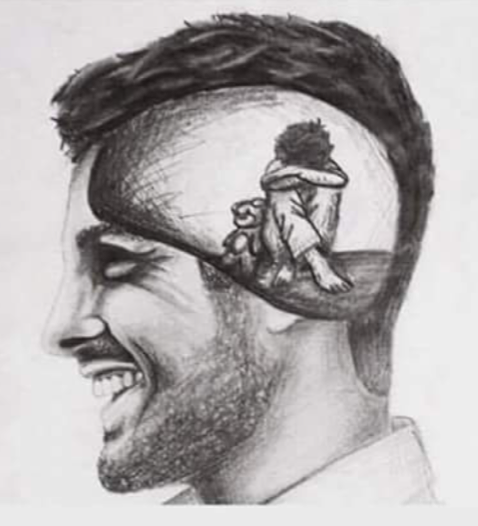
we make inward bedlam and will not come out
Let's listen in on the intense negotiations:
"I'll be good and obey the church rules if religion can just preserve my life. I'll believe what you tell me to believe, I'll obey all the doctrines, sing loudest in the choir, and pay money to The Nice Young at Church, if only you will save me from the terrors of death."
We "feed on night, make inward bedlam, and will not come out! ... This is our shelter against contemplation, our only refuge from the plain and clear."
Isn't this philistinism about the size of it? And this "shut-up-ness," as Kierkegaard called it, this closed personality, this bought-and-paid-for sense of justice, this divided personhood, this dereliction of divine call to unfold the soul, this misery-avoidance way of existing, serves as backdrop-motivator of so much that people do; most especially, as we grow older. With the finish-line in sight, people really get intense and, often, so very religious. As the great psychologists put it, it's an "impromptu immortality strategy."
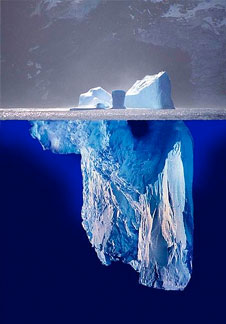
the fear of death is about ultimate loss
The Small Ego worries "I don't have enough" because "I am not enough"; but its greatest threat of loss is that of annihilation. The problem is "structural" and no amount of "content" will satisfy it. The only lasting solution to existential fear is that of accessing the inner riches, the deeper true self. Tolle provides the best advice:
my encouragement is to study and meditate on the insights and findings of Dr. Ernest Becker

There is far too much good material in Dr. Becker's book to comment on here. I consider it to be one of the very best discussions on the fear of death. The first half of the book is especially valuable, and it warrants several readings. I hope this book benefits you.
|
Fear eventually results from believing that power resides external to oneself.
My friend August Goforth offered the following in his blog writings:
Once admit that there is any Power outside yourself, however beneficent you may conceive it to be, and you have sown the seed which must sooner or later bear the fruit of "Fear" which is the entire ruin of Life, Love and Liberty. (Thomas Troward)
Therefore the power is inside, which is where I am and what I am as well.
There is no power outside myself. There is no room for fearful thoughts, I turn away from them and they do not exist. I am an immortal being so therefore there is no time for fear, anxiety and worry and doubt, now and forever now. There is only the experience of my being here and now.
I’m a child of God, a son of the infinite. I’m illumined and inspired. I’m happy, joyous, and free. One with God is a majority, and if God be for me, who on earth can be against me?
Editor's note: See the great many admonitions from afterlife sources concerning "going within" to find one's true self, linked to God.
Also, consider this regarding “there is no power outside oneself.”
Of the hundreds or thousands of afterlife testimonies I’ve reviewed during the last 25 years, not one of these speaks of Jesus as God to be worshiped. Not one. All of them would view Jesus as advanced and evolved Man, an elder Brother, one we are to emulate. But not adore. The “Course In Miracles,” too, purportedly channeled instruction from Jesus himself, agrees with all this and severely castigates any notion of the author’s Trinity-Godhood.
All this acknowledged, there are some afterlife reports which insist on continuing to refer to Jesus as “our Lord.” There is no “Lord.” There is no “holier than thou.” We, all of us, each one, possess the same spiritual DNA and potential as Jesus; and therefore, we, each one of us, will or can, someday, aspire to heights of development approximating that of our elder Brother. But there is no “Lord.” The term “Lord” takes us back to the days of master and serf. It’s the wrong paradigm, it promotes co-dependency, a dysfunctional servile mentality, and Jesus himself would be the first to disavow and discourage any affiliation with this cultishly-minded term.
“Lord” short-circuits the right spirit or level of consciousness for us. We are to cultivate a sense of the immanent God, the God within, the God linked to the true self. It is absolutely correct to assert that “there is no power outside oneself” because it is on the deep inside where we meet and know God. And to employ the term “Lord” sets us up for a future encounter with fear when the ego, sooner or later, perceives a threat of loss concerning the protective mantle of an external other, no matter how august or beneficent.
|
|


